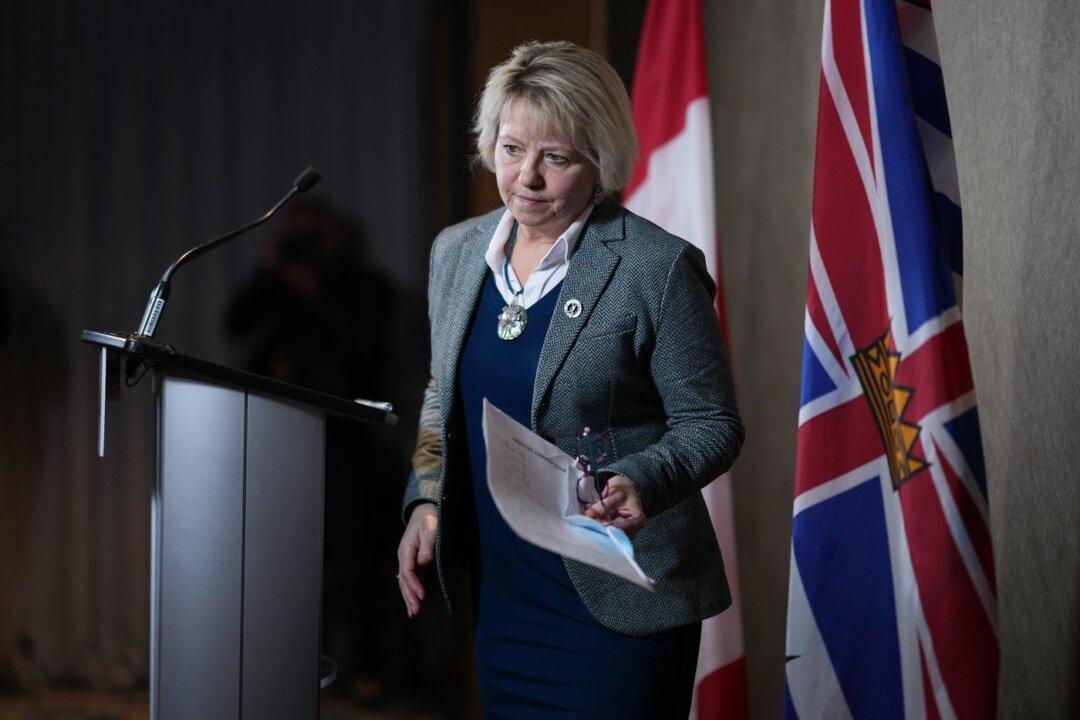British Columbia has lifted pandemic restrictions including mandatory mask-wearing in health-care settings, and proof of vaccination and COVID test results for visitors in care homes.
Provincial health officer Dr. Bonnie Henry said Thursday that the requirement for health-care workers to be fully vaccinated would remain, but the steady decline in COVID-19 hospitalizations indicated the province was “emerging” from the pandemic.





